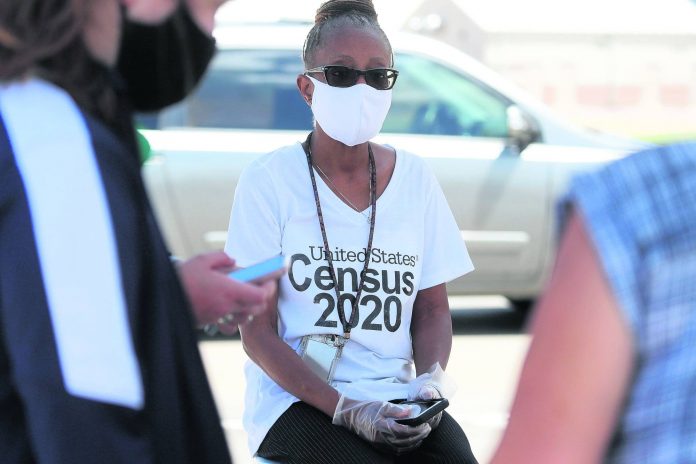
Noting the late timing of President Donald Trump’s order seeking to exclude people in the U.S. illegally from the process of redrawing congressional districts, a federal judge on Wednesday set a compressed schedule for legal arguments challenging the order as unconstitutional and a deterrent for immigrants participating in the 2020 census.
U.S. District Judge Jesse Furman ordered arguments from plaintiff and government attorneys in two combined lawsuits challenging Trump’s order to be filed by the end of August. The combined lawsuits were brought by several states, cities, civil rights groups and immigrant rights groups after Trump issued the memorandum on the apportionment process late last month.
The plaintiffs, led by New York state, are seeking a quick ruling from the New York judge and asked for the speedy schedule since the ongoing 2020 head count of all U.S. residents is set to stop at the end of September. Final population figures gathered from the census and used for redrawing congressional districts need to be handed over to the president by the end of the year.
Furman presided over another lawsuit two years ago that challenged an effort by the Trump administration to put a citizenship question on the 2020 census questionnaire. That lawsuit brought by many of the same plaintiffs in the current lawsuit eventually made its way to the U.S. Supreme Court, which last year blocked a citizenship question from being on the census form.
“I was going to say something about bringing the band back together,” Furman joked at the start of the hearing held by telephone.
Matthew Colangelo, an attorney in the New York state attorney general’s office, argued that a ruling had to be made quickly because Trump’s order was scaring off immigrants and people in the country illegally from participating in the 2020 census since they believed there was no point in answering the questionnaire if they weren’t going to be counted when it came time to redraw congressional districts.
States also needed a prompt ruling because many of them would be starting the process of redrawing legislative districts early next year and candidates needed to know where their districts were located to run in political races, he said.
“We believe this decision is causing irreparable harm right now,” Colangelo said.
When an attorney for the U.S. government arguing for a longer schedule said the focus should only be on how apportionment is affected by Trump’s recent memorandum since “the census is almost over,” Furman noted that Trump had waited until July to issue his apportionment order instead of after the Supreme Court’s decision last year.
“Isn’t that a problem of the president’s own making?” the judge asked lawyer Allison Rovner. “That seems a bit rich. He waited.”
Furman acknowledged the New York case may require a three-judge panel because it involves a challenge to the constitutionality of the redrawing of congressional districts. About a half-dozen other lawsuits challenging Trump’s order have been filed around the U.S., and Furman said he would consult with the others judges in those cases to coordinate efforts on gathering evidence, if needed.



















